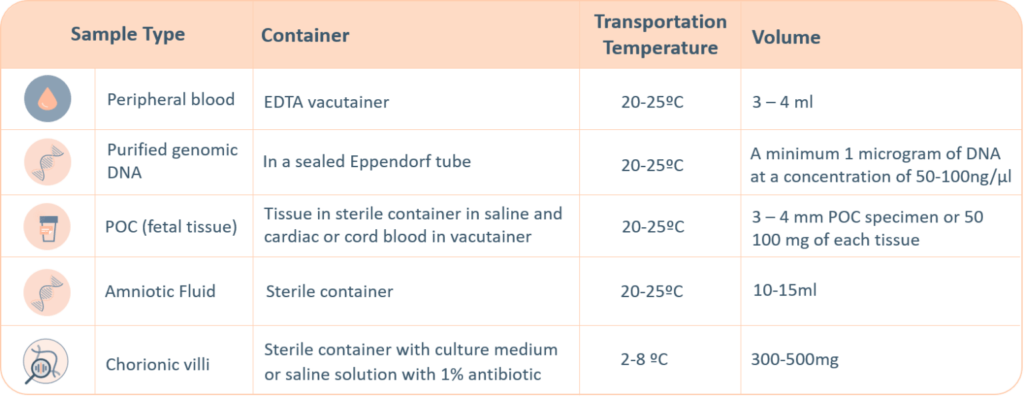Limitations
MLPA cannot detect
- Balanced chromosomal rearrangements.
- Telomeric deletions and duplications.
- Deletions and duplications that are outside the target of the MLPA probes used.
- Point mutations, small insertions and deletions.
- Sequence repeats or mutations in the mitochondrial DNA.
- Analytical sensitivity and specificity of the MLPA method are both 99%.
False positive or negative results may occur due to rare sequence variants in target regions detected by MLPA probes. A point mutation or polymorphism in the sequence detected by a probe, which results in reduced probe binding efficiency, can also cause a reduction in relative peak area. Therefore, single exon deletions detected by MLPA should always be confirmed by other methods like multiplex PCR or sequencing.







